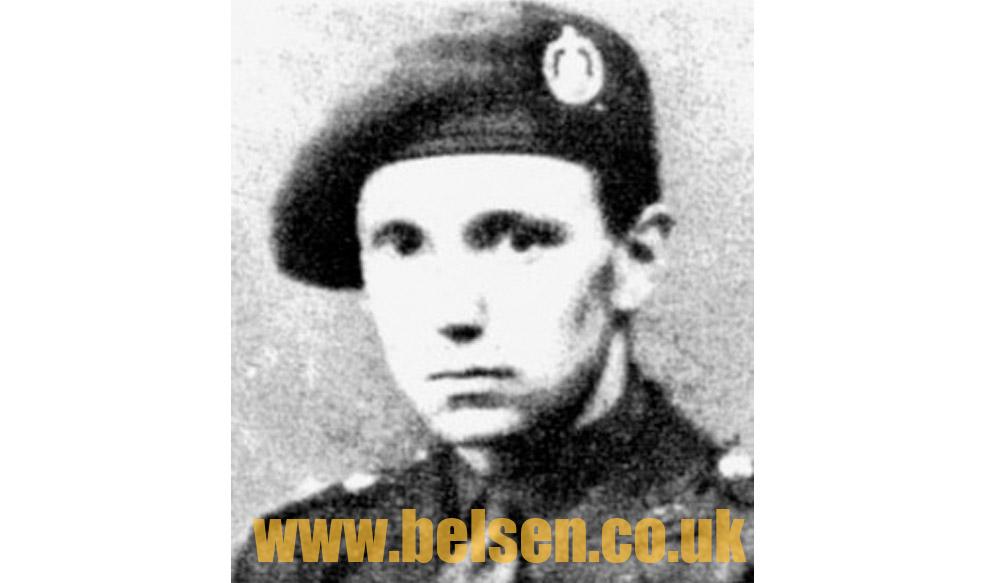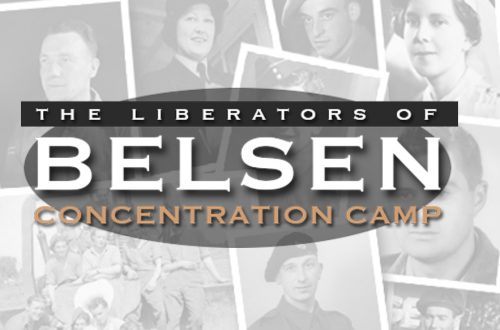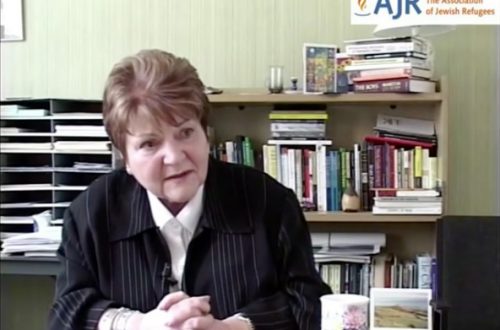
Brian Urquhart (Major) (Sir)
I left the airborne business after the Battle of Arnhem because I was pretty unpopular there. It’s unpopular enough to be the one person who opposes something that everybody else wants to do. But if you turn out to be right, you get seriously unpopular, and I was seriously unpopular because I was right.
So I asked to be transferred. I took over an armored car squadron which was supposed to move slightly ahead of the Allied advance and pick up German scientists and industrialists and secret formulas and papers and things like that; it was an intelligence operation. For some unknown reason, the British thought that German scientists would all want to go to Japan to continue the war. Every German scientist I met wanted to come to Berkeley, California, as soon as possible, because they all knew about the Lawrence Laboratory. It was the only place they wanted to go. Berkeley, California, was their idea of heaven.
We were quite far ahead and we got to the Belsen concentration camp, which was a very large one, more or less by mistake because we didn’t get the radio message telling all the troops to stop. The reason for stopping all the troops was that places like Belsen had an enormous camp population with virtually every infectious disease known to man. The authorities, rightly, were very worried that if the troops arrived and let them out, you would suddenly get a series of epidemics, not only just among the Germans, but among the army as well, which would be devastating. We didn’t get the message so we arrived at Belsen. It seems incredible now, but none of us knew about concentration camps. I knew about the persecution of the Jews but I had no idea that it had got to this unbelievable, really insane, point. And the first thing I saw about Belsen was when we were driving along a little country road and there was a big, high fence in the distance on a corner in the road with what appeared to be logs stacked inside it. And as we got nearer, it suddenly became clear to me these were not logs, these were human corpses. There were something like, I think, fifteen or twenty thousand unburied corpses at Belsen. And so we drove to the gate and I then realized that we had no idea what to do about this situation. We were past anger because it was a terrible spectacle of total, deliberate, human humiliation. It was terrible. Most of the people were scarcely alive; they were what you see in the pictures, they were skeletons. So I went inside the camp with my driver, who was a resourceful person, to see if we could find anyone in the camp who seemed to have any control of anything, because the guards had all left. They hadn’t been into the camp for something like six weeks. And we did finally find two doctors from Vienna who had done a most amazing job of taking the camp children and segregating them in one corner of the camp. Everything there was to eat or drink was given to these children so they had been preserved. And they told us a little bit about it. They also told us about the various diseases they had — virtually everything from measles to dysentery, to typhus, to typhoid, and people were dying at a rate of about 500 a day.
Well, if you have twenty soldiers in armored cars, there’s very little that you can do about a situation like that, so I sent messages to headquarters, saying what had happened. And then we said to the Jewish doctors, “Who is the commandant of this camp?” “Oh,” they said, “He’s still here, he’s in the SS barracks which are outside the camp.” So we went down there and there was this person who later became very famous as the “Beast of Belsen.” He was called Krämer. I went down to arrest him, and he began a long thing about how an oberstürmbannführer, which is a full colonel more or less, could not surrender to a junior officer. I was then a major, and my driver said “I think we’d better shoot him, don’t you?” And I said, “No I don’t think we could very well do that,” so we locked him up in a meat locker, because we didn’t have enough troops to guard him. There hadn’t been any electricity in this part of Germany for some time. And then we went with the doctors to see if there was anything we could do — very little. And then we waited for the convoys of ambulances and doctors and so on to arrive. With them arrived, the next day, the British general in that area, General Sir Brian Horrocks. He was a cavalry general, a very dashing figure. And he said “Well, you’ll have to show me around the camp. Where’s the commandant?” British generals always ask that question, “Where’s the senior officer?” So I said, “Oh, the senior officer, my goodness, well, we locked him up in a meat locker.” So I sent someone off the get Krämer. For some unknown reason the electricity had come on during the night, which hadn’t happened for weeks, and Krämer was extremely cold and very surly. He took the general around the camp like a tour guide. He was quite proud of it. What has stuck in my mind particularly is the effect it had on the soldiers. British soldiers are very friendly, and up to a point they even liked their enemies. They always called the Germans “Old Jerry” or “Brother Bosch,” or something like that, and they never did that after Belsen. They became stone-faced when they were dealing with the Germans. The concentration camps were an unbelievable eye-opener, and I can’t imagine why we hadn’t been told about them.
Update: Born 28 February 1919; died 2 January 2021
11,573 total views


